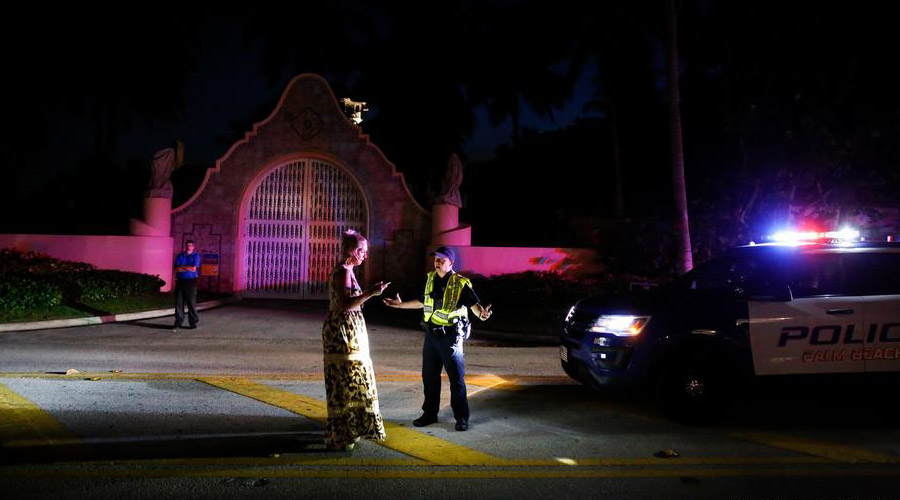FBI agents raided the former president's Florida estate earlier this week. According to court filings, they found a cache of classified documents.
US federal agents recovered heavily classified documents from former US President Donald Trump's Florida home, according to court documents published on Friday.
The FBI raided the property on Monday, but until now, have not provided details of what they were searching for or what was found. Federal law prohibits the mishandling of classified material and the unauthorized removal and retention of classified documents or material.
Top secret documents found
The court documents revealed that agents recovered 11 sets of classified documents, including four sets marked as top secret and seven other sets of classified documents. One of the top secret sets was additionally marked as "sensitive compartmented information" (SCI) — among the highest level of classification.
The contents of those documents were not listed. The "top secret" designation is reserved for the country's most closely held national security information. Such documents are normally help in special government facilities to avoid grave damage to national security.
Agents seized more than 20 boxes of items, as well as binders of photos, information on the French president, the executive grant of clemency for Roger Stone and a handwritten note.
According to the documents, Trump is being investigated for potential violations of the Espionage Act.
While in power, Trump increased the penalties for breaking these laws.
FBI requests court unseal documents
On Thursday, US Attorney General Merrick Garland said the Justice Department had asked a Florida court to unseal the documents, citing "substantial public interest in this matter."
Trump claimed in a post on his Truth Social website on Friday that none of the documents seized were classified.
"Number one, it was all declassified. Number two, they didn’t need to 'seize' anything. They could have had it anytime they wanted without playing politics and breaking into Mar-a-Lago. It was in secured storage, with an additional lock put on as per their request," he wrote.
According to US law, incumbent presidents can declassify information, but that authority lapses once they leave office. It was unclear if the seized documents were ever declassified.
Agencies including the National Archives issued multiple requests to Trump to turn over presidential records in accordance with federal law.
Which laws is Trump accused of breaking?
The unsealed warrant granted permission to seize items that contravene three different laws, which all deal with mishandling federal government records. The laws apply regardless of whether or not the records are still classified.
The first law cited prevents unauthorized possession of national defense information, and is punishable by up to 10 years in prison.
The other two laws, which prohibit concealing or destroying official US documents, are punishable by up to three and 20 years in prison, respectively.
FBI faces backlash
Since Monday's search, Garland and his department have faced a fierce backlash from the Republican Party as well as Trump and his supporters.
Following the initial raid, a gunman enraged by the search died in a shootout after trying to get inside the FBI's Cincinnati office. The incident is being investigated as an act of domestic extremism.











